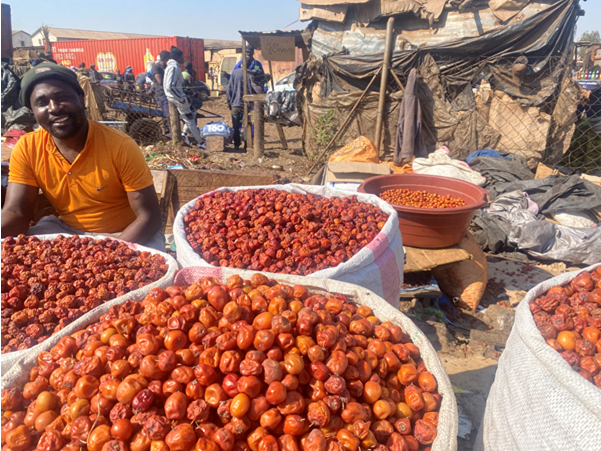Most of the products and innovations currently used in the world originated from schools, colleges and universities in the Global North, China and Japan. These countries have demonstrated how learning institutions can be fertile grounds for generating totally new solutions for society through cultivating attention to detail within learners. Why has it remained difficult for African schools, colleges and universities to do the same?

African institutions of higher learning seem to lack the capacity to inculcate high levels of attention to detail among learners so that they can build purposeful careers by converting natural resources like indigenous fruits into diverse products. Being too academic, the African formal education system does not build deep attention spans in learners so that they know what it takes to create decent jobs using abundant natural resources. Most young people especially graduates are more interested in quick money than paying attention to details that matter in using natural resources to change their lives. As if that is not enough, social media has become the biggest consumer of attention.
Instead of seeking important details, they prefer 2-minute videos. How much practical knowledge can one get from a brief video? Farmers have also cottoned on to this dilemma. When they receive a 20-minute audio full of powerful market intelligence, they complain about data consumption but don’t mind spending data on useless gossip in several Whatsapp groups. They just want quick information about prices yet the most important market intelligence is about sources, diversity and volumes in the market and levels of competition.
Harnessing the power of attention to detail
Very few African policy makers who talk about the potential of agriculture and food systems to create employment have been to a processing plant to appreciate how it works. Many farmers including government leaders prefer producing raw commodities because planting does not demand as much attention to detail as converting raw commodities into diverse products. Young people with the gift of paying attention to detail will become millionaires in African agriculture and food systems while the rest remain gullible consumers. It seems food vendors and traders in African territorial markets have better attention to detail than those who have gone through formal education.
Some of the critical details that are not captured in African agriculture and food systems are about losses. Government ministers are fond of announcing harvests in metric tons but figures related to losses are not mentioned. For instance, if a country harvests three million tons of grain, how many tons are lost? Answering such a question is very important in ensuring the profitability of agriculture. Details about food safety should also be captured because food safety has huge implications on export participation and the cost of public health. If many people visit hospitals due to consuming unsafe food, that lowers national productivity while increasing the national health bill. Without data and intricate details, government can end up delegating food safety standards to the private sector when it is the role of government to protect citizens from unsafe food. Food safety is part of food loss because food that is rejected for being unsafe translates to losses for farmers and the nation.
Time for new business models that generate totally new solutions for society
Judging by the diversity of commodities, quantities and gluts per given time, the agricultural sector in most African countries is overdue for disruption through developing new business models. That is why finding totally new solutions for farmers, traders, consumers and other value chain actors has become very urgent. Agricultural shows, food festivals, field days and formal buyers like grain marketing boards are no longer able generate new solutions. It is also time to make indigenous commodities stand out in a crowded market. If you see more traders in the market than consumers, that signals market failure caused by over-trading and saturation of the same products. A viable proportion should be 1 trader to 5 buyers at a given time – showing the vibrance of the market.
By mobilizing diverse commodities from different parts of the country, African territorial mass markets provide value chain actors opportunities to compare their products with what is in the market, develop critical thinking skills, improve their problem-solving abilities, and participate confidently in diverse markets. Curiosity is an entry point and a catalyst to learning how the market works, sources of commodities and meeting people with lived experience. Commodities in mass markets also provide a fairly accurate reflection of food diversity in the country.
Policy makers need to understand the significance of this moment
If policy makers do not understand the significance of linking formal education systems with natural resources and what happens in mass markets, African agriculture will remain disconnected from its promise. However, when policymakers understand the significance of this moment, they can create relevant policies, programs and practices that do not create new problems like gluts when there is no ready market, leading to food losses and missed value addition opportunities.
Charles@knowledgetransafrica.com / charles@emkambo.co.zw /
Website: www.emkambo.co.zw / www.knowledgetransafrica.com
Mobile: 0772 137 717/ 0774 430 309/0712737430
